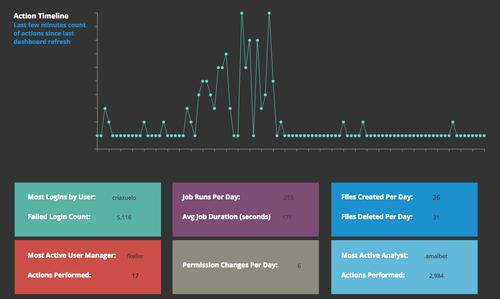Datameer is giving its native Hadoop environment new data governance capabilities in an effort to help organizations tackle data quality, security and compliance problems stemming from the growing use of analytics tools by business users.
Datameer's analytics application is designed specifically to make "big data simple for everyone," in the company's own words, and it combines self-service data integration, analytics and visualization features. As multiple departments and users within an organization get involved, however, it can become increasingly difficult for analysts and administrators to navigate all the resulting data pipelines.
Data silos are one potential consequence, as are regulatory-compliance risks when sensitive data sets are being used.
Datameer's new governance module is designed to give businesses transparency into their data pipelines while providing IT with tools to audit diligently for compliance with internal and external regulations.
New data-profiling tools, for example, let companies find and transparently fix issues like dirty, inconsistent or invalid data at any stage in a complex analytics pipeline. Datameer's capabilities include data profiling, data statistics monitoring, metadata management and impact analysis.
Datameer also supports secure data views and multi-stage analytics pipelines, and it provides LDAP/Active Directory integration, role-based access control, permissions and sharing, integration with Apache Sentry 1.4, and column and row anonymization functions.
For compliance with regulatory imperatives such as Sarbanes-Oxley and HIPAA, Datameer offers features that track data lineage, for example. Auditing functionality includes user-action logs and allows external systems to be notified about user and system audit events as they happen.
Finally, flexible retention rules allow each imported data set's retention policy to be configured individually. Security rules permit retired data to be instantly removed, retained until a specified time, or manually removed after system administrator approval.



